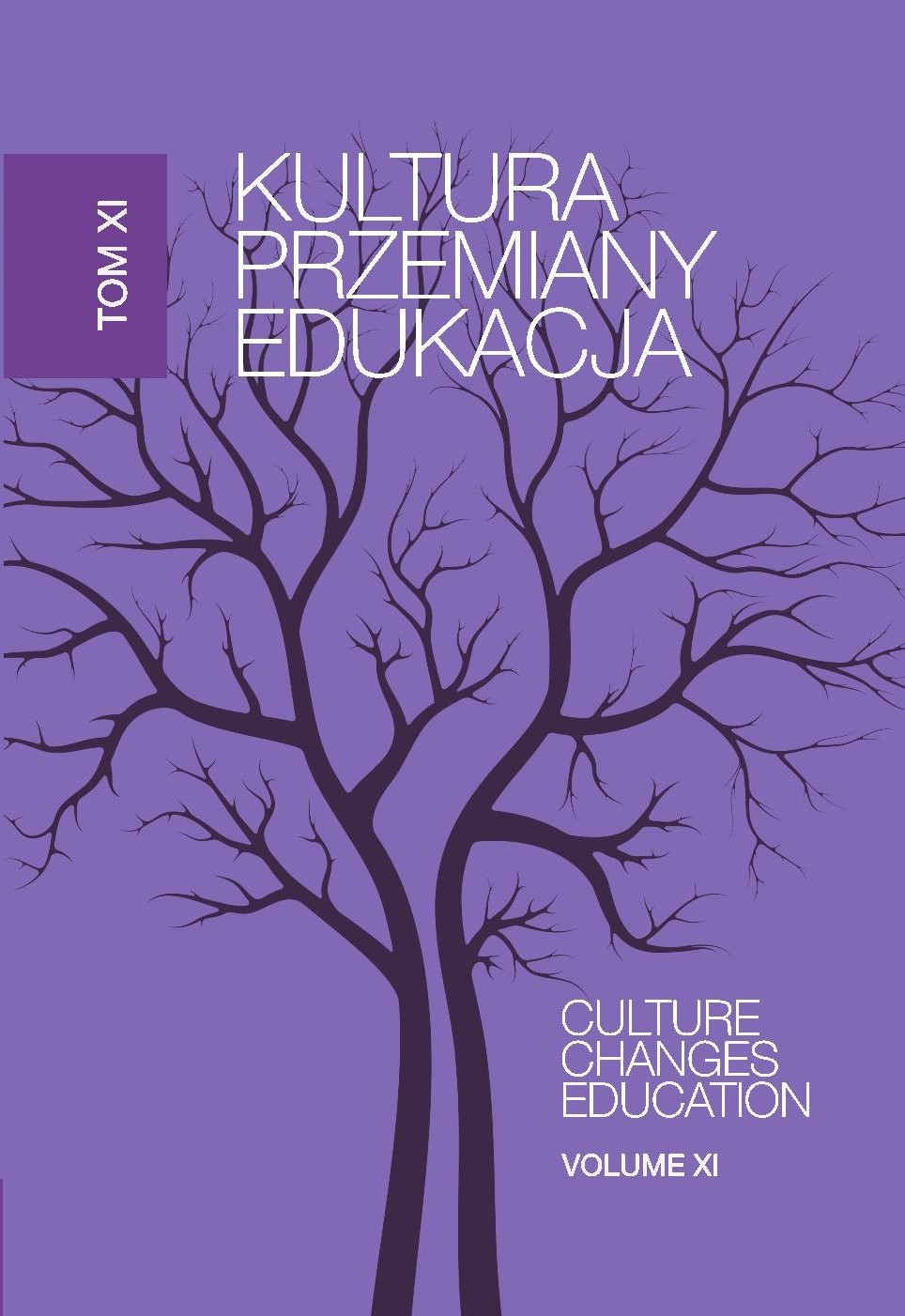Secondary education in Złoczów in the years 1730–1918
DOI:
https://doi.org/10.15584/kpe.2022.11.1Keywords:
Złoczów, Junior Secondary School in Złoczów, teachers of the Junior Secondary School in Złoczów, students of the Junior Secondary School in Złoczów, principals of the Junior Secondary School in Złoczów, junior high schools in GaliciaAbstract
The first secondary school in Złoczów, the Piarist college, was founded in 1730 or 1731 by Jakub Sobieski, the son of the Polish king Jan III Sobieski. It functioned for over half a century and was liquidated ten years after the first partition of Poland by the Austrian Emperor Joseph II Habsburg (in 1783). Later, for 90 years, Złoczów did not have a secondary school. Efforts to restore a secondary school in the city began in 1842. They lasted over 30 years. In 1873, Emperor Franz Joseph agreed to establish a lower secondary school in Złoczów with four classes. In 1878, the City Council obtained a provisional (for one year) consent from the Minister of Religious Affairs and Education to create a fifth grade. Over the next three years, she obtained provisional approvals to create sixth, seventh and eighth grades. As a consequence, for four years (1878/79–1881/82), the school was formally a lower gymnasium, and in fact a provisional upper secondary school. From the school year 1882/83, the school formally became a secondary school. During World War I, the school did not work for a year, because Złoczów was under Russian occupation. Later, it operated in extraordinary conditions in the frontline zone. Pupils of the oldest classes were drafted into the Austrian army or joined the Polish Legions. Among the outstanding graduates of the gymnasium, it is worth mentioning Stanisław Sobiński (1872–1926) – the director of the Real School in Tarnobrzeg and the 6th Junior Secondary School in Lviv, the first superintendent of the Lviv School District, murdered by Ukrainian nationalists. In the years 1873/74–1913/14, a total of 168 teaching staff were employed. Among many outstanding ones, Ludwik Kubala can be mentioned. He gained recognition as a scientist and popularizer of history.
Downloads
References
Biegański S., Szkoły pijarskie w Polsce: na pamiątkę 300-tej rocznicy istnienia Zgromadzenia ks. Pijarów (odbitka z „Muzeum”, R. 13, z. 11), Lwów 1898.
Bostel F., Reforma egzaminu dojrzałości, „Muzeum” 1908, R. XXIV, t. 1, z. 4.
Charewiczowa Ł., Dzieje miasta Złoczowa, Złoczów 1929.
Gawalewicz A., Kumaniecki Kazimierz [w:] Polski Słownik Biograficzny, t. XVI, Wrocław 1971.
Historia Polski w liczbach, red. A. Jezierski, Warszawa 1994.
Jezierski I., Historia gimnazjum złoczowskiego. Kronika zakładu za czas jego 25. letniego istnienia [w:] Spr. Gim. w Złoczowie za r. szk. 1899, Złoczów 1899.
Jezierski I., Historia gimnazjum złoczowskiego [w:] Sprawozdanie Dyrekcji c.k. Gimnazjum w Złoczowie za rok szkolny 1898, Złoczów 1898.
Kalbarczyk S., Ukraińska i białoruska lista katyńska, „Nasz Dziennik” z 29 kwietnia 2011 r., nr 99 (4030).
Ochenduszko T., Bursy dla młodzieży szkół średnich i ich organizatorzy w Galicji w okresie autonomii (1869–1918), Rzeszów 2011.
Ochenduszko T., Leksykon kadry kierowniczej gimnazjów galicyjskich w okresie autonomii, Rzeszów 2015.
Ochenduszko T., Leksykon nauczycieli i wychowanków I Gimnazjum i Liceum w Rzeszowie urodzonych pomiędzy XVII wiekiem a 1945 rokiem, Rzeszów 2010.
Ochenduszko T., Pomocnicy kancelaryjni dyrektorów [w:] Sprawozdanie Dyrekcji I Liceum Ogólnokształcącego w Rzeszowie za r. szk. 2012/2013.
Ochenduszko T., Szkoły średnie w Drohobyczu w latach 1775–1918 [w:] Sprawozdanie Dyrekcji I Liceum Ogólnokształcącego im. ks. St. Konarskiego w Rzeszowie za rok szkolny 2015/2016.
Ochenduszko T., Szkoły średnie w Stanisławowie w latach 1669–1918, „Prace Historyczno-Archiwalne” 2016, t. XXVIII.
Ochenduszko T., Szkoły średnie w Kołomyi w latach 1861–1918, „Prace Historyczno-Archiwalne” 2018, t. XXX.
Ochenduszko T., Szkolnictwo średnie w Samborze w latach 1680–1918 [w:] Spr. Dyr. I Lic. w Rzeszowie za r. szk. 2017/2018.
Ochenduszko T., Pietryka W., Szkoły średnie w Tarnopolu w latach 1820–1918 [w:] Spr. Dyr. I Lic. w Rzeszowie za r. szk. 2014/2015.
Ochenduszko T., Świętoń M., Filie galicyjskich szkół średnich w drugiej połowie XIX i na początku XX wieku [w:] Spr Dyr. I Lic. Ogóln. w Rzeszowie za r. szk. 2018/2019.
Pelczar R., Szkolnictwo pijarskie na Rusi Czerwonej w XVII i XVIII w. [w:] Szkolnictwo pijarskie w czasach minionych a współczesne problemy edukacji historycznej, t. 1, red. K. Wróbel-Lipowa, M. Ausz, Kraków–Lublin 2010.
Próchnicki Z., Dębski Władysław [w:] Polski Słownik Biograficzny, t. V, Kraków 1939–1946.
Szwedo B., Wierni do końca. Kapelani wojskowi ofiary Zbrodni Katyńskiej, Warszawa 2020.
Świeboda J., Dzieje I Gimnazjum w Rzeszowie 1786–1918, Rzeszów 1984.
Wanat P., Dyrektorzy gimnazjów wobec problemów organizacyjnych i dydaktycznych swoich szkół w latach I wojny światowej i walk o granice Drugiej Rzeczypospolitej [w:] Rzeszów swoim bohaterom. Środowisko rzeszowskich gimnazjów wobec odzyskania niepodległości, Rzeszów 2020.
Zamorski K., Informator statystyczny do dziejów społeczno-gospodarczych Galicji: ludność Galicji w latach 1857–1910, Kraków–Warszawa 1989.
Janelli M., Piątek J., Kalendarzyk profesorski Towarzystwa Nauczycieli Szkół Wyższych, R. II, Lwów 1914.
Sprawozdania Dyrekcji Gimnazjum w Złoczowie za lata szkolne 1881/82–1920/21, Złoczów 1882, 1883, 1884, 1921.
Sprawozdanie Dyrekcji Gimnazjum w Brzeżanach za rok szkolny 1875, Brzeżany 1875.
Szematyzmy Królestwa Galicji i Lodomerii z Wielkim Księstwem Krakowskim na rok 1875, Lwów 1875 i na rok 1914, Lwów 1914.
Ustawy i rozporządzenia obowiązujące w galicyjskich szkołach średnich, zestawił H. Kopia, Lwów 1900.
Downloads
Published
How to Cite
Issue
Section
License
Copyright (c) 2022 KULTURA – PRZEMIANY – EDUKACJA

This work is licensed under a Creative Commons Attribution-NoDerivatives 4.0 International License.


